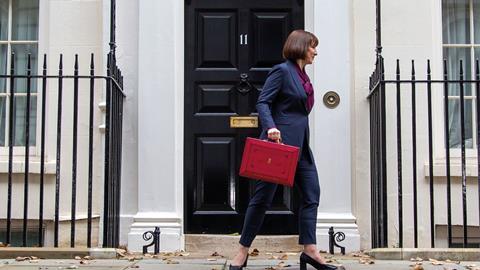The chancellor giveth, the chancellor taketh away. In her first budget last month, Rachel Reeves announced a rise in employers’ national insurance contributions (NIC) of 1.2 percentage points to 15% from 6 April 2025. Reeves said the ‘difficult decision’ was made to raise the revenues required to fund the country’s public services – presumably including the welcome, though modest, boost in justice spending.
While the NIC increase will scarcely be noticed by City partnerships, for legal services providers with hefty staff costs and fixed income, it is another story. At a fundraiser to celebrate its 50th anniversary on Monday night, South West London Law Centres (SWLLC) revealed that the chancellor’s tax hike will cost the group £33,569.
SWLLC’s 40 staff and network of pro bono lawyers help thousands of people in need every year, but ‘we know so many we cannot reach within the confines of our existing funding’, chair of trustees Allan Blake told the fundraiser.
Only a third of SWLLC’s income comes from legal aid. The rest comes from law firms, grant-giving organisations and individual donations. ‘It’s tough and it’s getting tougher,’ declared Blake, before revealing the impact of the higher NIC.
According to calculations by the Law Centres Network, the higher NIC will cost a law centre an extra £800 per employee per year on average.
‘SWLLC alone faces an added cost of over £33,000 a year – that’s the equivalent of the salary costs of one junior staff member,’ Nimrod Ben-Cnaan, the network’s head of policy and profile, said. ‘Unlike other organisations, law centres are not able to pass the added expense on to their clients.’
Ben-Cnaan said every law centre is now mulling how to absorb the additional cost. ‘We work hard to recruit and retain our dedicated workforce. We are already struggling to compete with public- and private-sector salaries and to remain attractive employers,’ he said. ‘The last thing we want to do, then, is lay people off. Instead, this change is likely to make law centres more reluctant to recruit for new vacancies. This would mean further pressure on law centre services, at a time of already stretched capacity and increasing demand.’
The higher NIC will also be another blow for struggling legal aid firms. Research commissioned by the Law Society found that lawyers lose money doing housing legal aid work: general costs in the economy are over 90% higher than they were in 1996, when legal aid fees were last increased.
‘Given that the government controls legal aid fees, legal aid providers cannot pass any increased business costs on to their clients,’ said Chris Minnoch, CEO of the Legal Aid Practitioners Group. ‘So an increase in one of their core costs, those associated with their personnel, has to be managed in another way. It can only lead to further losses, staff reductions, or pivoting away from legal aid work to privately funded work where firms have control over fees. This is why we are not only calling on the government to introduce an inflation-linked fee increase, but also a mechanism to regularly review fees and uprate them in line with increases in business costs.’
Other small firms are also affected. Anthony Earl, chair of the Law Society’s Small Firms Network committee, said profit margins are low for most network members ‘so this change will be challenging and inevitably result in an increase in fees or a reduction in staff, neither of which will be beneficial to our clients’.
SWLLC’s Blake urged the government to exempt charities from the higher NIC. HM Treasury is standing firm.
A Treasury spokesperson said: ‘Our tax regime for charities, including exemption from paying business rates, is among the most generous of anywhere in the world with tax reliefs for charities and their donors worth just over £6bn for the tax year to April 2024. We have protected small charities and businesses by more than doubling the employment allowance to £10,500, meaning more than half of them with NICs liabilities either gain or see no change next year. Charities will still be able to claim employer NICs reliefs including where eligible and are still exempt from business rates.’
The government says increasing employer NIC will raise over £25bn to help fund the NHS and protect ‘working people’s’ payslips from higher income taxes.
A noble cause: but one that should not come at the expense of justice-related public services.




































